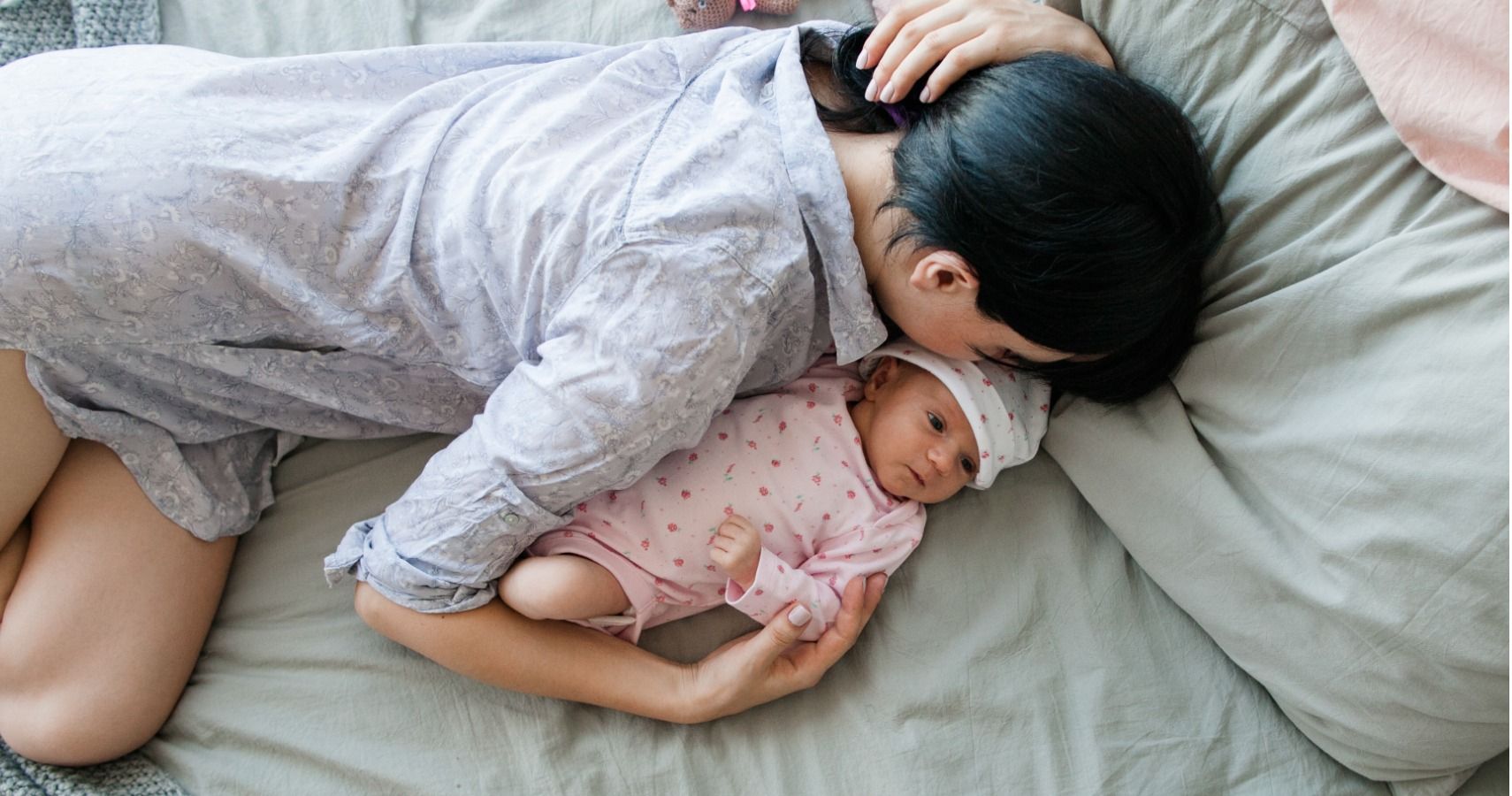We can't think of one parent who ever questioned why their baby wasn't sleeping. It almost seems like whenever you're struggling with getting your newborn to sleep through the night is always whenever you need someone who has a baby sleeping a full eight hours at night. Sometimes, those are the hardest works to hear. We find ourselves trying everything just to get our little ones to go down for the night and are always questioning "why?" whenever they are resisting.
Well it turns out that we just might have an even bigger impact on why our babies sleep well or not so well, according to a new study.
Conducted by the University of Alberta Faculty of Medicine & Dentistry, which analyzed data from Canadian parents, has found that babies sleep less at three months of age if their mothers do not have a university degree, experienced depression during pregnancy, or had an emergency cesarean-section delivery.
Yeah, our jaws are dropping over here, too.
To come to these conclusions, the researchers looked at data from 619 infants and their mothers participating in AllerGen's CHILD Cohort Study (which is a national birth cohort study collecting a wide range of health, lifestyle, genetic and environmental exposure information from 3,500 children and their families from pregnancy to adolescence).
The numbers boil down to this: infants born to mothers without a degree slept an average of 13.94 hours per day, 23 minutes less than infants born to mothers with a university degree. The National Sleep Foundation guidelines suggest an average of 14-17 hours of sleep per day at three months of age.
Piush Mandhane, an associate professor of pediatrics at the University of Alberta and one of the study's lead authors, shared how this study really was able to take previous findings and dig deeper. She says that" while earlier research has linked a mother's socioeconomic status, including level of education, to shorter infant sleep duration, we have not really understood the factors at play. Our study revealed that 30 per cent of the effect of maternal education on infant sleep duration is actually mediated by a mother's prenatal depression, as well as the type of delivery."
In addition, they found that mothers without a degree to be at more risk of having symptoms of depression while they are in the prenatal and postnatal periods, or the prenatal period alone, compared to women with a degree.
Co-lead author of this study, Anita Kozyrskyj, also a professor of pediatrics at the U of A says that "Mothers in distress tend to have sleep problems during pregnancy, which can be 'transmitted' to the fetus via the mother's circadian clock and melatonin levels," she said. "Maternal depression and emergency cesarean section also both lead to elevated free cortisol levels, which, in turn, may cause an exaggerated stress response in infants that negatively impacts their sleep."
Overall, this shows that women need more support in general. Before they are pregnant, during and after. Their emotional and mental state plays a much bigger role that we had ever imagined.
READ NEXT: New Parents Face Up To Six Years Of Sleep Deprivation

